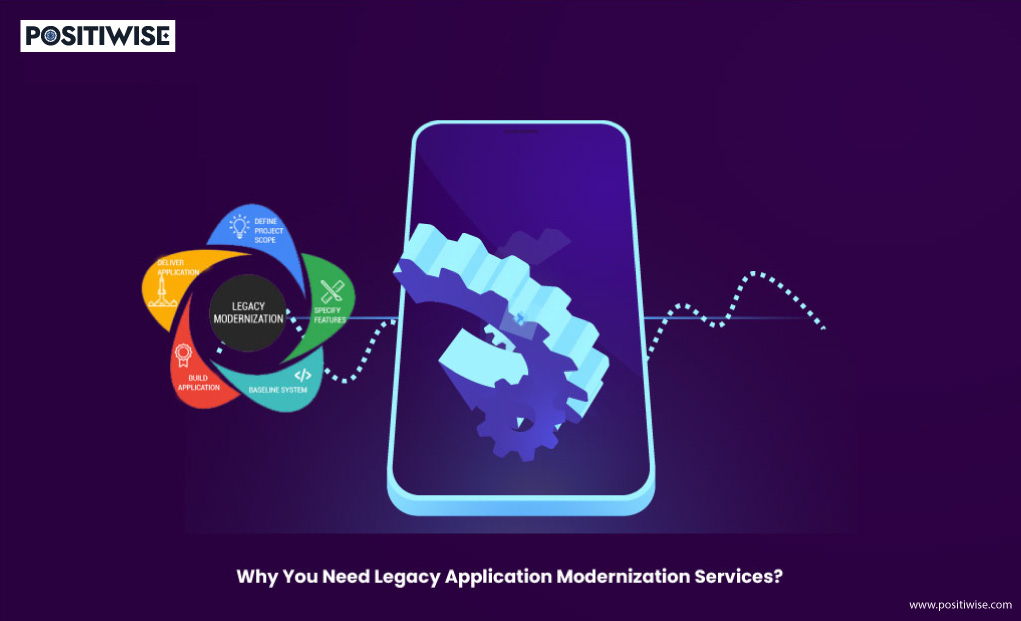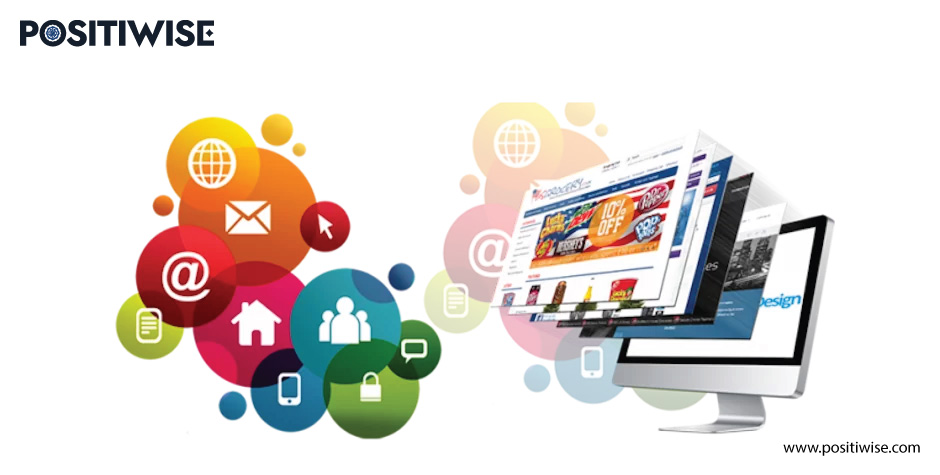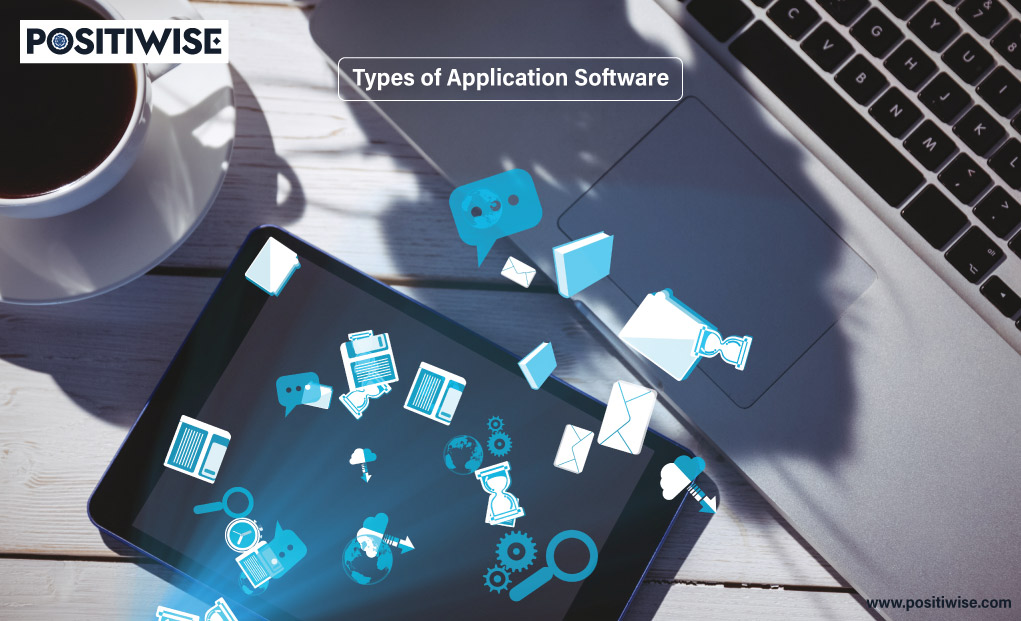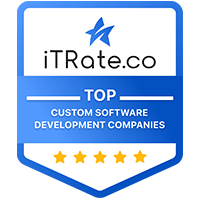Quick Overview:
The speed of innovation and technology has made it possible for companies to operate in a new way. However, when it comes to legacy software, these systems are often outdated, making them difficult to maintain and update.
Today’s businesses need to be agile, adaptable, and able to meet the needs of their customers. With this in mind, companies need to modernize their legacy systems to keep up with the latest trends in the industry. This article will explain legacy software definition, Legacy Application Modernization Services, Application Modernization Services, legacy application modernization benefits, and challenges.
What is Legacy Software?
Legacy software is a computer program developed, released, and supported over a long period. Sometimes, the software may have been developed in-house by an organization or company. In other cases, the software was developed by external vendors who have sold it to other organizations for use in their systems. Legacy software is a program that’s been around for a long time. It may be maintained, but it may also be challenging to use and change.
Businesses often use legacy software because it’s familiar and easy for employees. However, many companies are finding that this approach doesn’t work well in the age of technology. As more employees access their company’s information from mobile devices, legacy software can become cumbersome and difficult to update. Legacy application modernization services are a perfect fit for companies with large, complex applications that need to modernize their IT infrastructure.
Your company may be in the process of upgrading or revamping its current infrastructure, but there is still too much software in place to make any real progress. Or maybe you’re unsure what direction to take with your business. Whatever the case, Legacy Application Modernization Services can help you make the right decisions on moving forward with your business.
Benefits of Using Legacy Software
Legacy software is a computer program developed, released, and supported over a long period. Sometimes, the software may have been developed in-house by an organization or company. In other cases, the software was developed by external vendors who have sold it to other organizations for use in their systems. Legacy software is a program that’s been around for a long time. It may be maintained, but it may also be challenging to use and change.
Businesses often use legacy software because it’s familiar and easy for employees. However, many companies are finding that this approach doesn’t work well in the age of technology. As more employees access their company’s information from mobile devices, legacy software can become cumbersome and difficult to update. Legacy application modernization services are a perfect fit for companies with large, complex applications that need to modernize their IT infrastructure.
Your company may be in the process of upgrading or revamping its current infrastructure, but there is still too much software in place to make any real progress. Or maybe you’re unsure what direction to take with your business. Whatever the case, Legacy Application Modernization Services can help you make the right decisions on moving forward with your business.
Why do Companies Need Legacy Application
There are several reasons why companies need legacy application modernization:
Modern Innovation
If a company doesn’t have an updated application, it won’t be able to keep up with the latest innovations in its industry. This can result in lost revenue, reduced productivity, and increased costs due to outdated technology.
Scalability of Cloud Resources
There are many reasons why companies need legacy applications. The main reason is the scalability of cloud resources. Another reason why companies need legacy applications is that they are easy to use and understand. It is much easier for employees at your company to use legacy applications than new ones. Many organizations use cloud-based resources for their applications and services. These resources help businesses save money while also allowing them access to innovative technology that they would otherwise not have been able to afford or implement independently.
Data Security
Another important reason why companies need legacy applications is data security. Modern applications are more secure than traditional desktop applications because they use encryption mechanisms that make it difficult for hackers to steal valuable information from them. The only way to keep this information safe is by using an effective security system that protects all your data from unauthorized access.
Why You Need Legacy Application Modernization Services?
Legacy application modernizing service is a complex process involving several steps and tasks. It is not an easy job to complete by yourself. It would help if you kept in mind that several parts of the legacy application must be upgraded or replaced.
You first need to identify the areas that need improvement and then go ahead with them. The next step is to implement the changes in your current application. The final step is to test it before releasing it for public use. Legacy application modernization challenges are crucial for data integration, and there are many ways to approach this challenge. There are many challenges associated with legacy application modernization. The biggest challenge is the cost and time involved in upgrading the systems needed to support new features and functionality.
You will have to look for services like Legacy Application Modernization Services if you want help with your project. These professionals will help you with all the steps in modernizing your old applications. Legacy application modernization benefits are to help you implement efficient designs, secure code, and even improve the usability of your website or app.
Accelerate Your Business with Custom Software Solutions
Struggling with outdated or ineffective software? Our expert team provides custom systems designed specifically for your business needs. We analyze your operations, build solutions to fit your workflow, and integrate with existing infrastructure.
Conclusion
Legacy software is becoming a significant challenge for organizations, especially in the healthcare industry. Legacy applications were written before the current version of the application was developed and deployed so they may contain obsolete functionality and inconsistent data formats. It can be challenging to overcome when modernizing IT systems because it will be difficult to update and maintain.
To overcome these challenges, you need a legacy application modernizing service. You also need to understand how it’s changing over time and how your organization will support that change.
Expert in Marketing Strategy and Brand Recognition
Jemin Desai is Chief Marketing Officer at Positiwise Software Pvt Ltd, he is responsible for creating and accelerating the company’s marketing strategy and brand recognition across the globe. He has more than 20 years of experience in senior marketing roles at the Inc. 5000 Fastest-Growing Private Companies.






